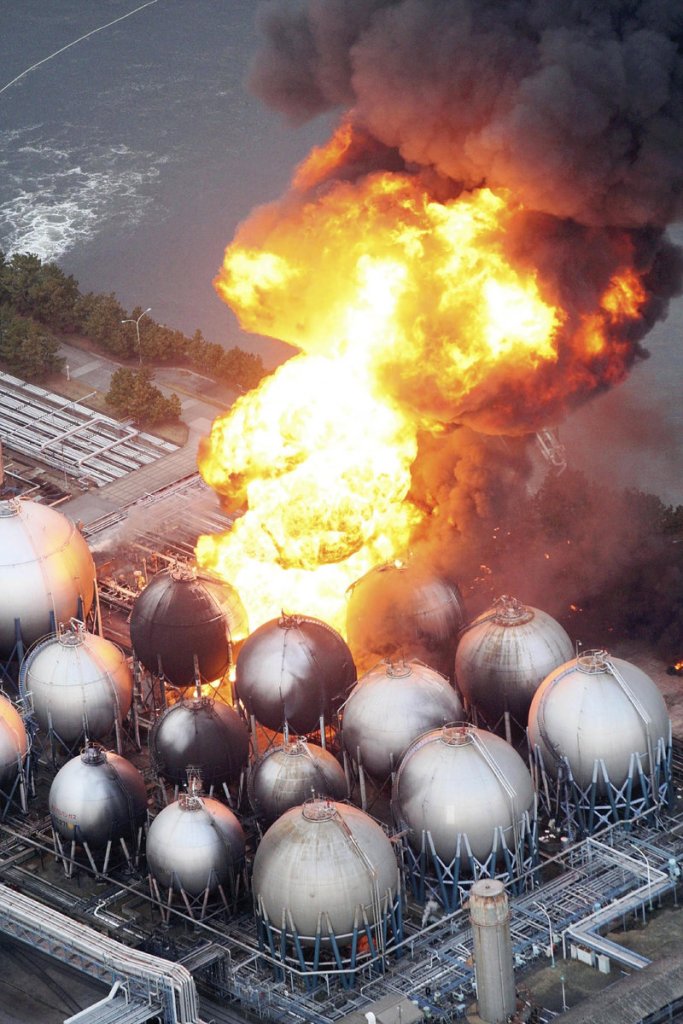WASHINGTON – The powerful earthquake and tsunami that slammed northern Japan knocked out car plants and steel mills, stranded thousands in offices and at Disney’s resort in Tokyo, and pummeled financial markets in Asia and Europe.
But the biggest effect on the world economy may yet come in further roiling oil prices that already have cast a pall on the global recovery.
The 8.9-magnitude temblor forced the shutdown of a number of Japan’s oil refining facilities as well as some of its nuclear power plants. The loss of substantial refining capacity in the world’s third-largest economy is likely to inject more volatility into gasoline prices, raising the risk of even higher pump prices for American motorists.
Experts say that if Japan can’t get its refineries back online quickly, there will be a spike in that country’s demand for gasoline, diesel and jet fuel. Global suppliers, including refineries in California, may find it more profitable to increase shipments to Japan instead of selling the fuel domestically, resulting in a bidding-up of prices.
“It’s a ‘yikes’ situation,” said James DiGeorgia, editor of the Gold & Energy Advisor. “The sudden importation of large amounts of distilled products is expensive and it’s a heavy logistics burden. That is going to drive up the market price for everything from diesel and gasoline to jet fuel.”
An extended shutdown of two nuclear power plants in Japan would probably push up demand for fossil fuels.
Bob van der Valk, a fuel-price specialist and consultant, took note of news footage of a refinery burning in Japan.
“Someone is going to have to make up for that,” he said. “That could come from the West Coast.”
The United States and some other countries have shown signs of a broadening recovery. At the same time, higher oil and food prices, along with ongoing fiscal troubles in Europe, have raised concerns about inflation, a possible tightening of credit by central bankers and the prospect of slower growth.
Financial markets in Asia and Europe took an immediate hit Friday as investors unloaded shares of insurance companies, leading Japanese makers of autos and electronics and some other global companies. A number of American companies, including 3M, Dupont and Wells Fargo, reported damage to their facilities in Japan, and many others said they had suspended production or services.
The reaction on Wall Street was more encouraging: The Dow Jones industrial average climbed back above 12,000, rising 59.79 points, or 0.5 percent, to 12,044.40.
Shares of some U.S. companies moved higher on the belief that companies will benefit from extensive infrastructure rebuilding in Japan. Engineering giant Fluor Corp. was up more than 4 percent. Although past disasters have crimped the economy in the short term, rebuilding efforts often have spurred longer-term growth, said Brett Hammond, chief investment strategist at TIAA-CREF in New York.
In Japan, the Nikkei closed down 1.7 percent, with the Japanese auto industry hit particularly hard.
Nissan, Toyota and Honda all shut down plants. Honda reported the death of a 43-year-old worker at its research center in Tochigi.
Send questions/comments to the editors.



Success. Please wait for the page to reload. If the page does not reload within 5 seconds, please refresh the page.
Enter your email and password to access comments.
Hi, to comment on stories you must . This profile is in addition to your subscription and website login.
Already have a commenting profile? .
Invalid username/password.
Please check your email to confirm and complete your registration.
Only subscribers are eligible to post comments. Please subscribe or login first for digital access. Here’s why.
Use the form below to reset your password. When you've submitted your account email, we will send an email with a reset code.